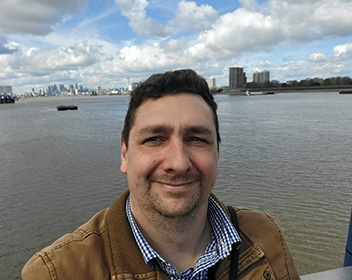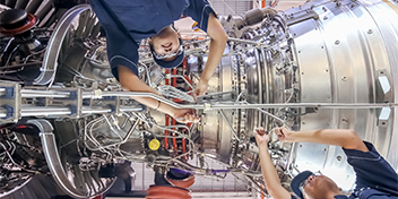What inspired you to become an engineer or pointed you towards an engineering career?
My father ran a fire safety contracting company and my older brother works in fire engineering. At school I wanted to be an electrical engineer, so I began a degree in electronic engineering and during this time I worked with my father, who asked me to help him with some of his projects. I upskilled in fire systems and after working on some exciting projects (sugar mills, ports and casinos), I discovered a passion for the varied work that fire engineering offers. I then worked for a global engineering consultancy that my brother was working for, in South Africa. This gave me an appreciation for how big fire safety engineering was and where I could grow.
Please describe your role or position within your workplace.
I’m a Senior Fire Engineer working at Marshall Fire, a fire engineering consultancy in the UK. My role is quite varied because we are a consultancy that provides fire engineering and fire consultancy services, to all sectors of the built environment - primarily working on fire strategies for new buildings and looking at retrospective fire strategies for existing facilities that don’t have fire strategies.
Can you describe a typical working day?
Day to day I’m in front of the computer, answering emails, having meetings over Teams and compiling fire strategies. A lot of my time is spent writing reports and reviewing colleagues' reports.
Are there any particular challenges or unusual aspects to your role?
The biggest challenge is probably staying at the forefront of what is accepted as risk and what are the accepted strategies of mitigating that risk. The same challenges that all fire engineers will face. I guess what’s unusual with me is coming from South Africa I believe I have a greater appreciation for the varied approaches one can take in mitigating fire related risk. Working in the UK for Marshall Fire has allowed me to add to my skill set and get a deeper understanding of the UK regulations, which has been a fantastic opportunity.
What do you find most enjoyable about your job?
The best part of my job is going out to see the different sites. I have a lot of experience with heavy industry, this includes but not limited to diamond mines, copper and aluminium smelters, sugar mills, ethanol production facilities, tyre manufacturing and large hazardous chemical storage facilities. Therefore, I believe I’ve found my niche over here in the UK market. There is a lot of unique design required to mitigate the risk of the specialised processes for industrial facilities which I enjoy. I also like the environment, seeing the diverse engineering disciplines required, and seeing how things work, as well as going to places you wouldn’t normally go to.
Is there a great professional achievement or high-profile accomplishment that you would like to tell us about?
Working towards my Incorporated Engineer (IEng) title while working full-time is one of my greatest professional achievements to date. I’m so glad I’m now recognised for all the years of work I’ve done.
What contributed to your decision to become professionally registered?
My engineering degree is in electronics, specialising in control systems and process instrumentation. This isn’t considered the norm for fire engineers, which is why I wanted to become professionally registered in this field. I knew that only by becoming professionally registered would I be able to clearly show that I am competent in this field.
In what ways has registration benefitted your career?
My peers and my clients can now demonstrably see that I have been assessed by industry professionals and that I have been accepted as competent in my field. This provides comfort and assurance to them in the advice I give. I would hope that registration will open up opportunities for more (perhaps even bigger) projects in the future.
How does your employer benefit from your professional registration?
I’m now able to share the responsibility of handling projects at this level. I’m eligible to apply for the EWS1 Professional Indemnity Insurance (PII) scheme, which I have done. I can now also offer more value to the client and therefore the company when we’re invited to tender for projects.
Is there any advice you would pass on to someone considering professional registration?
I would recommend just starting the process as soon as possible. If you’re unsure you meet the criteria, get in touch with the Engineering Council or the organisation you are applying through and find out. The Institute of Fire Engineers (IFE) assisted me in every step of the way. It might take a few years (it took me three but you’ll never get it if you don’t start it.
Where do you see yourself in your career in five years’ time or what are your future ambitions?
I’ll continue to work on as many different and varied projects as I can. I plan to acquire the additional skills and competences required for CEng registration. My plan over the next five years is to become a Chartered Engineer (CEng).
Outside work, is there any activity you enjoy doing in your spare time that relates to engineering? For example, do you participate in mentoring, volunteering or membership of other engineering groups?
I’m a member of IFE and I’m supporting a colleague outside of work with his registration application.









